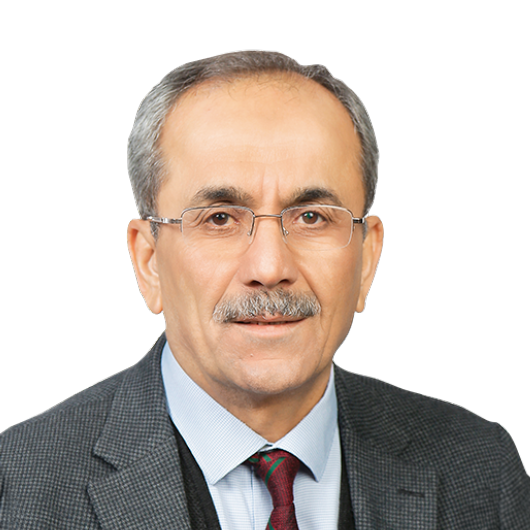
- 26.12.2024, Thursday
- 18:10
France, Israel, Armenia using liberalism as a means to legitimize imperialist violence
11:5122/03/2021, Pazartesi
U: 22/03/2021, Pazartesi
Next article
Selçuk Türkyılmaz

Those using violence as political means often refer to Algeria’s War of Independence and Frantz Fanon’s views, which are associated with this war. A critical tone was developed against Fanon’s views in this framework in Europe and the U.S. especially after 1968, with the imperialist activities of France and other colonialist states no longer being subject to criticism through the concept of violence. Yet, France wanted to create a sense of horror among the local public by disregarding the law of
Those using violence as political means often refer to Algeria’s War of Independence and Frantz Fanon’s views, which are associated with this war. A critical tone was developed against Fanon’s views in this framework in Europe and the U.S. especially after 1968, with the imperialist activities of France and other colonialist states no longer being subject to criticism through the concept of violence. Yet, France wanted to create a sense of horror among the local public by disregarding the law of war in Algeria. Fanon was a colonial citizen from Martinique, and he knew that violence was used on France’s colonial territories as a tool. Fanon arrived in Algeria with the French army as a doctor and observed the Algerian War of Independence as an insider. He had also witnessed the sense of horror France was trying to create in Algeria. We see examples of this in his books titled, “The Wretched of the Earth,” “Black Skin, White Masks” and “Dying Colonialism.” Martinique, a French colony, was already a great observation area for him.
It has been claimed that Fanon sanctified violence or considered it a means of purification. These judgments paved the way for the formation of a new hegemony over countries struggling for independence in the intellectual field. While the violence applied locally in terms of the success of colonialist states’ settler policy was considered legitimate, anti-colonial activity was convicted. Israeli violence being turned into a state policy is an example of this. The violence policy France implemented in Algeria and Israel’s practices in Palestine are similar. Violence was used locally to oppress the public and eliminate resistance groups. Since this policy has proven to be successful, it was revived in the 1990s by the very same countries. The continuity of colonialist states’ policy of violence must also be noted.
Armenian gangs also followed a similar policy during the Ottoman period. They created a sense of horror in order to achieve success locally. Thus, referring to Fanon’s views when relating the issue of the Kurdistan Workers’ Party, which considers violence as a means, is a substantially wrong approach. While the violence enforced by organizations such as the PKK and the Fetullah Terrorist Organization (FETÖ) are elucidated as a means of European countries, the expansionist policies of the U.S. and Israel, and imperial centers’ foreign policies must be taken as reference. Fanon being used as a reference to explain terrorist organizations’ policy of violence should be considered an example of intellectual violence.
Meanwhile, some groups in Turkey persistently trivialize concepts such as “foreign interventions” and “foreign threats,” claiming that we only have ourselves to blame. However, we must confess that this approach involves great chicanery. The circumstance presented is supposedly one in which a logical approach is not sacrificed to animosity. Yet, all our shortcomings and blindness thrive on this approach. For example, Turkey could not grasp that FETÖ had been taking steps over the years to seize the state and nation from within. One of the most important reasons underlying this is the lack of knowledge about imperialist countries’ regional policies. The time came and this organization enforced the most extreme examples of violence on its own people in the name of religion. The PKK also exhibited the most extreme examples of violence in the name of an ideology and ethnic belonging. It is impossible to define these examples without including the concepts of foreign policy and foreign threats. Thus, the trench terror, which started in 2015, and the coup that transpired in July 2016 were unforeseen. These two events must be analyzed over and over again to realize the dimensions of blindness. The real factor preventing both events from being grasped is the fact that these events were raised to the level of liberal law ideology during their explanation process. Detecting weaknesses and blind spots is critical in terms of analyzing the problems and determining a strategy.
Saying that we only have ourselves to blame is not innocent or logical behavior. On the contrary, just as we are unable to see the changes affecting the whole world, we also fail to ascertain our own dynamics. This then requires further withdrawal. Surely our own flaws and weaknesses are important, but when we consider them as the sole determinant, we cannot see the dependent organizations that are formed within global relationship networks, or their areas of activity.
That is when all obstacles preventing conservative opposition will be lifted.
#France
#Israel
#Armenia
#imperialism
LEGAL NOTICE
The BIST name and logo are protected under the "Protected Trademark Certificate" and cannot be used, quoted, or altered without permission.All rights to the information disclosed under the BIST name are entirely owned by BIST and cannot be republished. Market data is provided by iDealdata Financial Technologies Inc. BIST stock data is delayed by 15 minutes.
